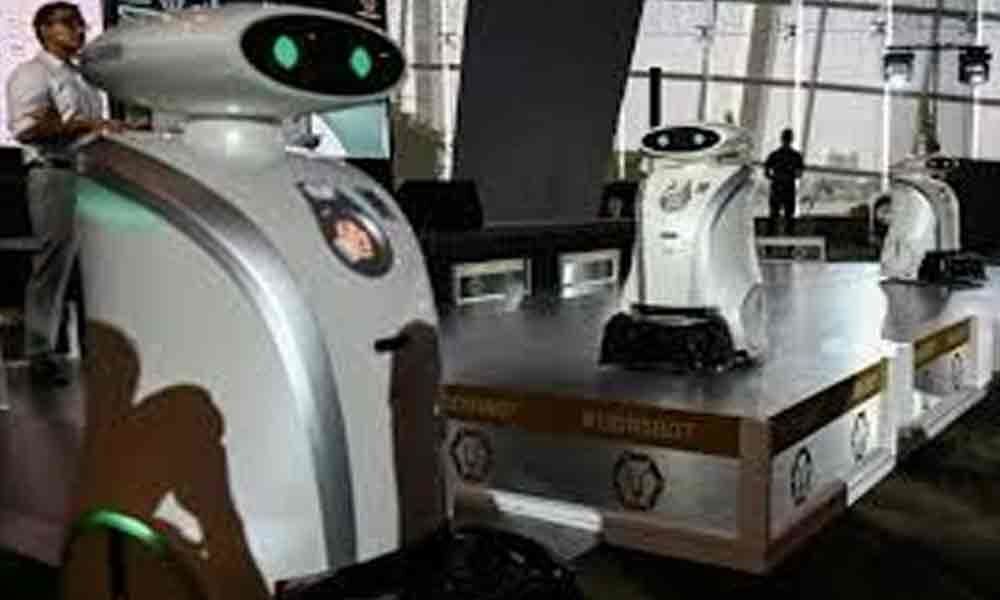Robots used to engineer new antibiotics
 Robots used to engineer new antibiotics
Robots used to engineer new antibioticsResearchers have used robotics to engineer a common gut bacterium to produce a new class of antibiotics, a "breakthrough" that could be vital for the ongoing battle against antimicrobial resistance.
These antibiotics, known as class II polyketides, are also naturally produced by soil bacteria and have antimicrobial properties which are vital in the modern pharmaceutical industry to combat infectious diseases and cancer.
The naturally produced Escherichia coli bacteria are difficult to work with as they grow in dense clumps that are incompatible with the automated robotic systems used for modern biotechnology research, said researchers from The University of Manchester in the UK.
By transferring the production machinery from the soil bacteria into E coli, the team is now making this class of antibiotics accessible for much more rapid exploration. This breakthrough could be vital for the ongoing combat against antimicrobial resistance, as recently developed automated robotics systems can now be used to create new antibiotics in a fast and efficient way, said researcher. The study, published in the journal PLOS Biology, shows the potential of this approach.
By combining the bacterial production machinery with enzymes from plants and fungi, it was possible to produce new chemical compounds not previously seen in nature. Using this plug-and-play platform, it will now be possible to explore and engineer polyketides using robotic systems to develop new and diversified polyketides in an automated, rapid and versatile fashion.
"Nature is a huge treasure trove for powerful chemical compounds to treat a wide range of diseases," Eriko Takano, Professor at The University of Manchester. "However, the most interesting chemicals often come from organisms that are difficult to work with in the laboratory," said Takano.









